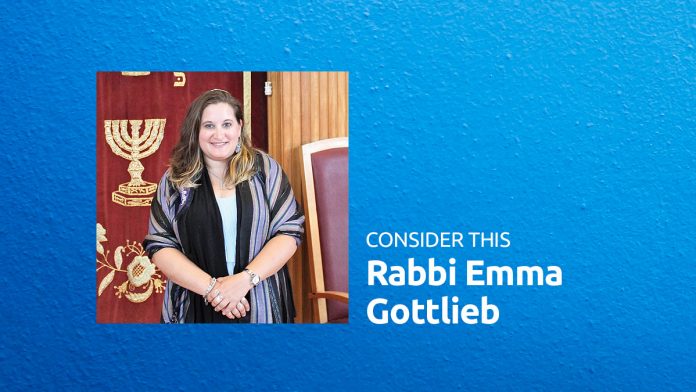Trauma is the response to deeply distressing or disturbing events that overwhelms our ability to cope, causes feelings of helplessness, diminishes our sense of self and our ability to feel the full range of emotions and experiences.
Dr Betsy Stone, a retired psychologist who currently teaches rabbinical students in North America, wrote recently that, “many of us are already traumatised — startling at sirens and afraid of the grocery store. We’re fighting with our loved ones and regressing into adolescent behaviour. Our sleep is disturbed and our moods are grim. And we live in fear of even more trauma and loss.”
Dr Stone introduces five basic principles to help keep us ‘grounded and sane’ in the face of ongoing trauma: safety, choice, collaboration, trustworthiness and empowerment. Safety is about ensuring that our basic needs are met. Choice is about making decisions that impact our lives. When our choices are limited by circumstances, naming and claiming the choices we still do have can make a huge difference to our emotional well-being. Collaboration is when we recognise that some our choices impact others and decide to make those choices together. “Social distancing”, Dr Stone points out, “is a form of collaborative behaviour.” Collaboration, when done well, builds trust, which lessens our sense of trauma.
Empowerment, the fifth principle helps us to feel less out of control and powerless. Dr Stone writes, “We need to begin to think about the places we do have power. We have the power to see good in others, to act from our most generous and caring selves.” Dr Stone notes that meaning-making is a form of empowerment as well, so finding ways to identify what you are learning during this time and how it might change you, can help you to feel stronger and more in control of your future. “We know that naming bad feelings lessens their power,” she writes. “Talk about how you feel. Find meaning in rituals. Spend time with people you love and people who will listen to you, even over the phone. Don’t only use social media to connect. Reach out.”
In my relatively short time in South Africa, I’ve noticed that South Africans are very stoic when it comes to bearing up in hard times. Feelings are not always easily shared. I imagine this comes from already having lived through serious national trauma. Stoicism is what helps us to stay calm, to focus on what’s important and under our control, not wasting thoughts or time on what we can’t affect. But sometimes we are too stoic, thinking that emotions make us weak, not dealing with our feelings or addressing them. This is actually an unhealthy form of being stoic.
There is a Midrash which teaches that despite all the miracles God had performed before the Exodus, no one had ever sung a song of praise until the splitting of the Red Sea. Rabbi Yosef Yehuda Leib Bloch, who founded a new branch of Jewish ethics that he named Shiurei Da’at in the early 1900’s, taught about this midrash that, rather than this being a failing on the part of our patriarchs and matriarchs, it was actually, “a demonstration of their immutable faith”. Rabbi Bloch felt that true faith in God means that we accepts whatever comes our way as the will of God.
This is a form of Religious Stoicism. But Moses himself presents us with another option, by refusing to accept the suffering of his brethren. Time and again, Moses advocated for his people when God was angry with them, even when they had sinned against God. Moses’ capacity to be stimulated by the distress of his people, was the flipside of his ability to be moved and therefore rejoice in song when he witnessed their miraculous salvation. As the greatest prophet ever known, Moses models for us the importance of sharing our feelings — those that we like to feel, as well as those we may wish not to feel.
Though we are physically pent up right now, it is vital that we not allow our emotions to be pent up as well. We must empower ourselves and one another to battle our collective trauma by sharing with one another in conversation, in poetry, in song, or perhaps in prayer with God.
By Rabbi Emma Gottlieb
Temple Israel www.templeisrael.co.za
To read or download the full June 2020 issue PDF of the Chronicle, click here
To keep up to date on COVID-19 related community news, click here
Portal to the Jewish Community: to see a list of all the Jewish organisations in Cape Town with links to their websites, click here
To receive the Chronicle each month in your inbox instead of your postbox please email editor@ctjc.co.za and we will make it happen.
Follow the Chronicle: Facebook | Instagram | Twitter | LinkedIn











